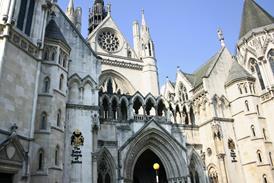The High Court has given guidance on the transfer of existing cases to the Shorter Trials Scheme.
What’s happened?
On 1 October 2015, the Shorter Trial Scheme (STS) and the Flexible Trials Scheme (FTS) came into force. In Family Mosaic, the parties made an application to transfer the case into the STS.
Why is it important?
This is the first application to transfer a pending case into the STS. The judgment deals with a number of issues raised by the application, including whether the court has the power to transfer a pending case into the scheme; the circumstances in which it will be appropriate to allow transfer; and the procedure to be followed on transfer.
How does this fit into existing law and practice?
Within the judgment a number of different issues were addressed.
(1) Jurisdiction
The court held that it has jurisdiction to transfer a pending case into the STS pursuant to CPR 3.1(2)(m) and the overriding objective, even though PD51N does not expressly state that the court can transfer an existing case into the STS.
(2) Ambit of the scheme
The STS is for all cases in the Admiralty and Commercial Court, London Mercantile Court, Technology and Construction Court and Patents Court, and for business cases in the Chancery Division which do not include:
(a) allegations of fraud or dishonesty;
(b) the need for extensive disclosure and reliance upon extensive witness or expert evidence; or
(c) multiple issues and multiple parties.
It is also not suitable for cases in the Intellectual Property Enterprise Court and public procurement cases.
In the Chancery Division, the STS is for business cases only. The term ‘business’ is a broad one that covers a wide range of cases. The contrast is between business cases in the widest sense, and purely private, non-commercial matters such as family property and family trusts.
(3) Procedure
Even though the application was made by consent, the court felt it was necessary to consider whether the transfer was in accordance with the overriding objective. However, it was highlighted that in future simple cases, reasoned judgments might not be needed. Furthermore, even thought the STS has particular rules concerning statements of case, there was no need to require the parties to amend the existing particulars of claim or defence.
In what ways does this affect practitioners?
It is now clear that, as outlined in PD51N, paragraphs 2.2 and 2.3, pending cases can be transferred into the STS if the case falls within the appropriate class of cases. If a case is transferred, amendments to pleadings may not be necessary and, in fact, may be deemed disproportionate.
Disclaimer
While we try to ensure the accuracy of the information provided, it does not constitute legal advice, and cannot be relied upon as such. The Law Society does not accept any responsibility for liabilities arising as a result of reliance upon the information given.






















